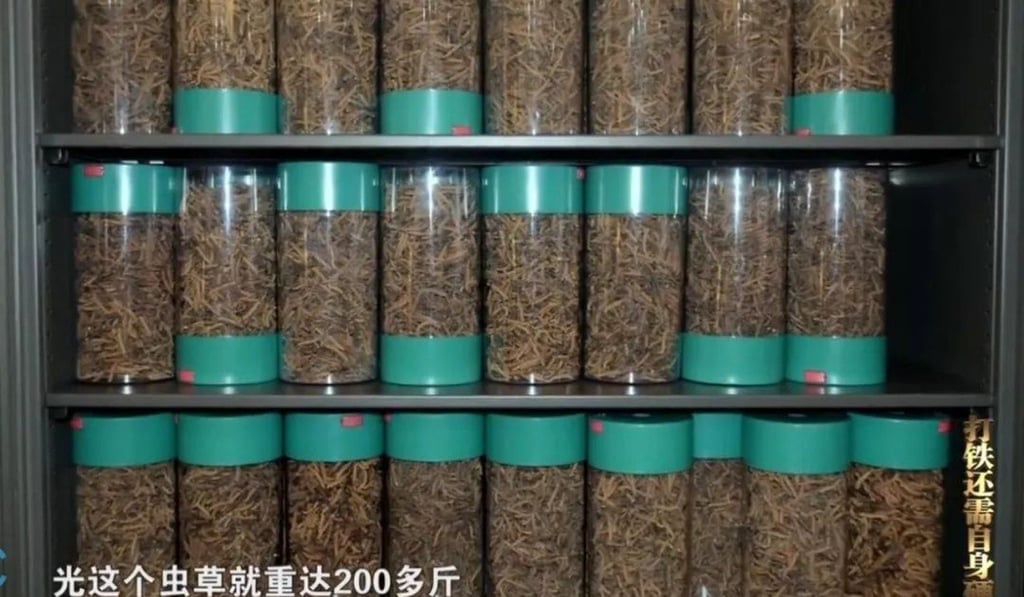‘Himalayan Viagra’ the focus of China’s latest anti-corruption campaign
- Fungus that grows on caterpillars and sells for more than gold has become a popular currency among crooked officials
- Authorities in Qinghai province announce three-month campaign to combat use of ‘local specialities’ to finance crime

Anti-corruption authorities in northwest China have launched a campaign to crack down on the use of a valuable fungus, sometimes known as “Himalayan Viagra”, to bribe officials.
Cordyceps is a fungus that lives on certain caterpillars found in mountainous regions of China. Highly prized by practitioners and devotees of traditional Chinese medicine, it is mostly used to treat kidney disorders and male sexual problems, and to improve athletic performance.
While there is little scientific evidence to support any of those claims, the fungus is more valuable than gold. Kam Yong Lee, who has been selling cordyceps in Causeway Bay, Hong Kong for the past 20 years, said the current price of the fungus was HK$370 (US$47) per gram, or about HK$40 a gram more expensive than the precious metal.
“In the good old days, the price of top grade cordyceps was over HK$40,000 a tael, or more than HK$1,000 per gram,” he said.

The fungus’ high price and ease of portability has made it a popular currency among corrupt officials over the years, but that could be about to change.
On March 18, China’s disciplinary watchdog, the Central Commission for Discipline Inspection, said in an online statement that its branch in Qinghai province had begun a three-month crackdown on corruption cases involving cordyceps.